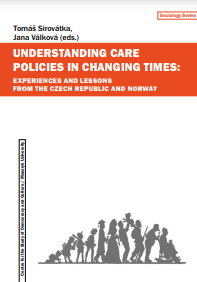Balancing acts: Family care strategies and policy frameworks in the Czech Republic
Balancing acts: Family care strategies and policy frameworks in the Czech Republic
Author(s): Blanka Plasová, Kateřina Kubalčíková
Subject(s): Politics, Welfare systems, Family and social welfare
Published by: Masarykova univerzita nakladatelství
Keywords: family care; Czech Republic; policy;
Summary/Abstract: As is deeply discussed in Chapter 1, childcare and/or eldercare stand at the intersection of the state, the market and the family (Daly and Lewis 2000). From the micro-perspective, it is then important how families/ caregivers cope with care requirements in a contemporary society characterized by an aging population together with increased life expectancy, growing labour market participation of women (as traditional caregivers), enforcement of gender equality and welfare state changes (permanent austerity trends, expansion of the service sector) (e.g. Esping-Andersen 2009; Blome et al. 2009). Thus, we firstly explore how families organize care, what kind of care they provide to their children and dependent elderly members, how the responsibilities and tasks are shared, and how they combine caregiving with other commitments in their daily lives such as paid work and family life. The question of care arrangements, work-family balance and expectations of family caregivers is relatively open in expert and public debates in the case of the childcare field (e.g. Křížková and Vohlídalová 2009); however, the study of care provided by families to older adults is a recent focus in the Czech Republic (e.g. Jeřábek 2013; Havlíková 2012). In our data, we found several models in child- as well as in eldercare arrangements which we introduce below.
- Page Range: 135-159
- Page Count: 25
- Publication Year: 2017
- Language: English
- Content File-PDF

